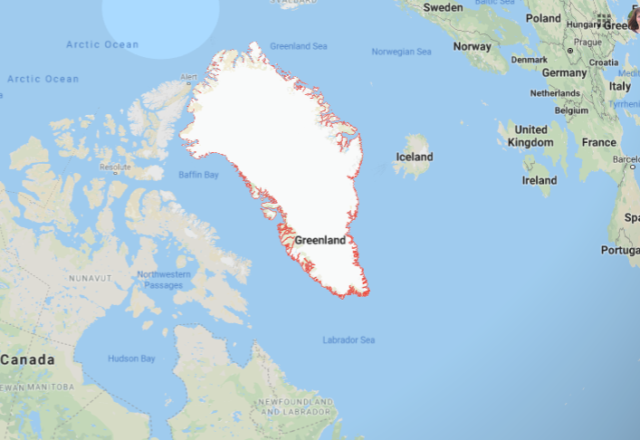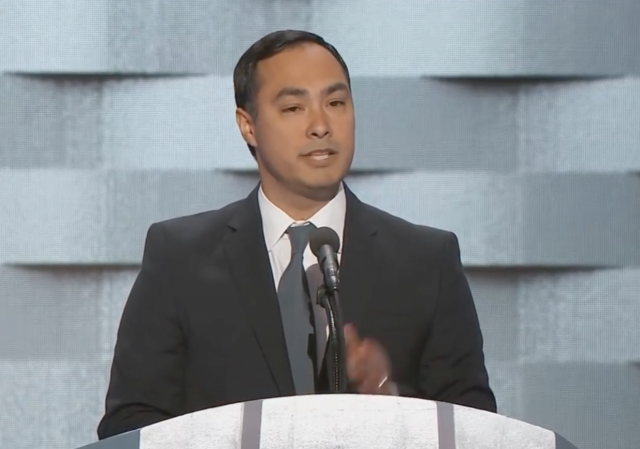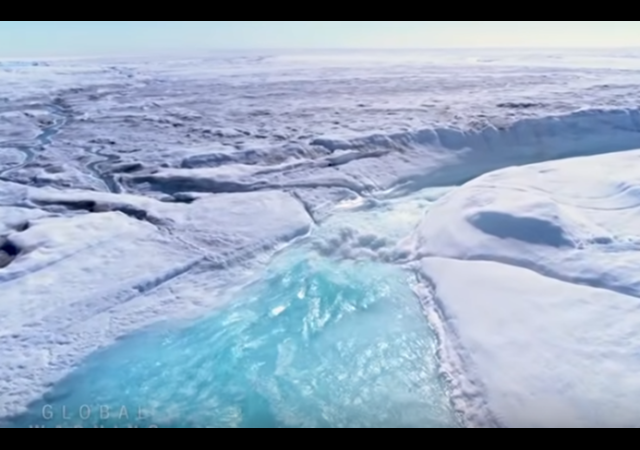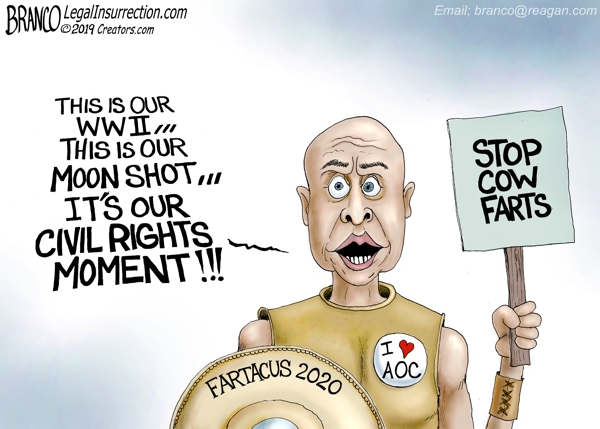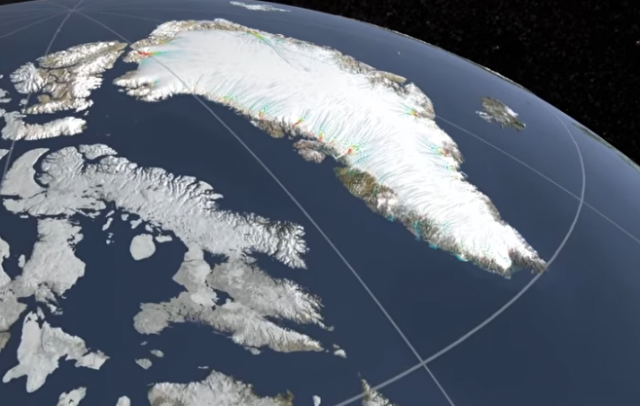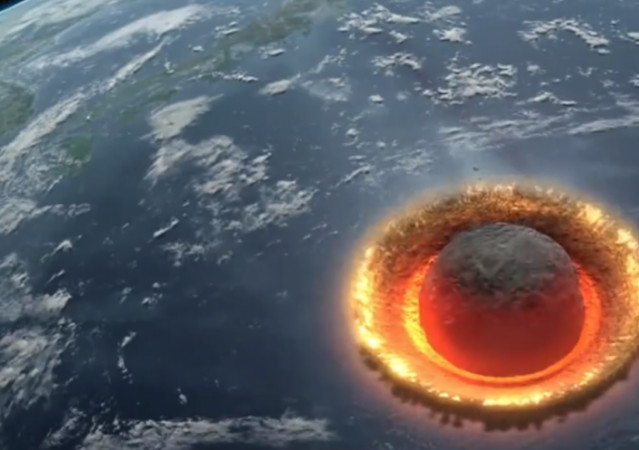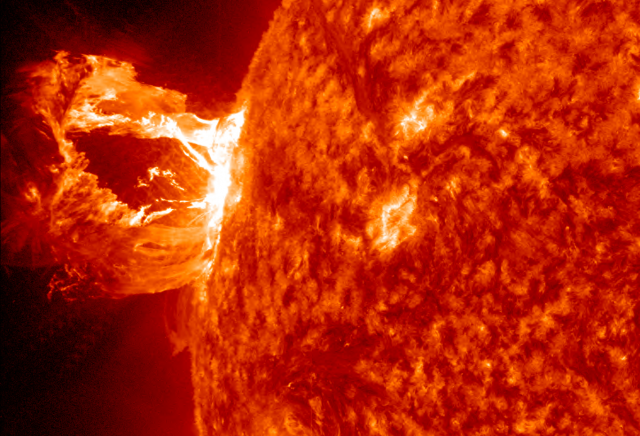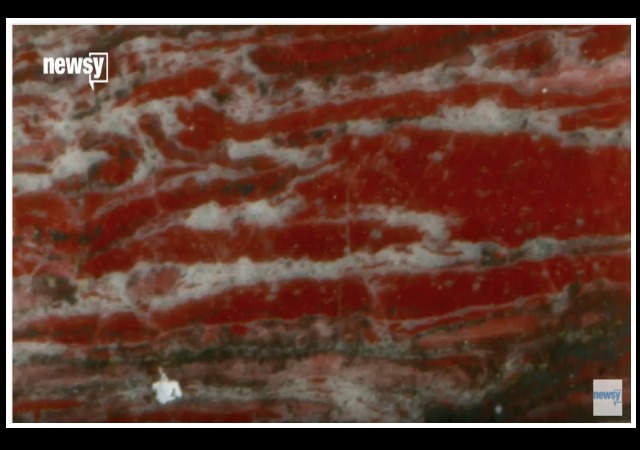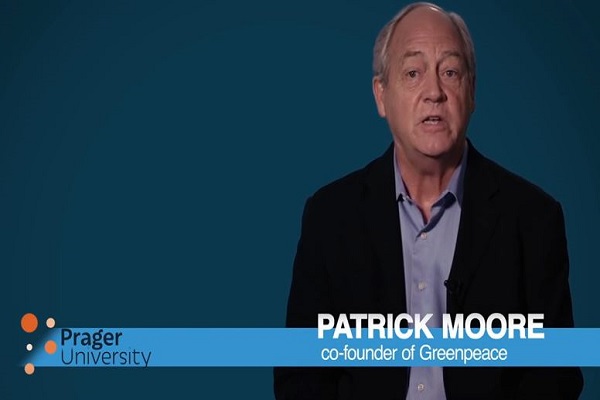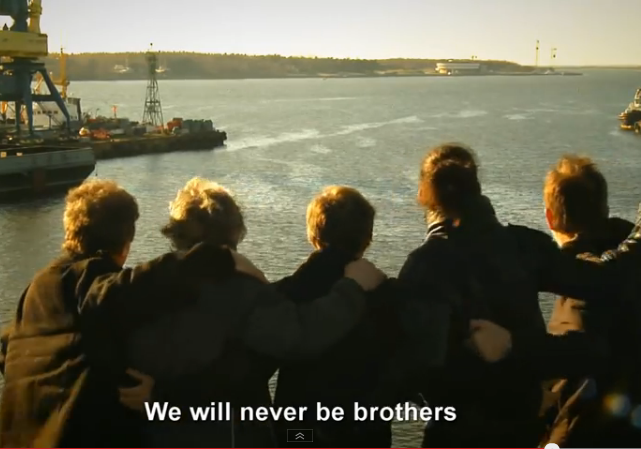Greenland Tag
Trump postpones meeting with Danish PM after refusal to discuss selling Greenland
The Left Resists Reality Week at Legal Insurrection
All the news you may have missed....
Trump Reportedly Wants to Buy Greenland for the United States
Democrats Inciting the Mob Week at Legal Insurrection
All the news you may have missed....
Shocking Video of Melting Greenland Glacier….in Summer Heat
Green justice advocates may soon rebrand “Climate Change”
Greenland Glacier Reverses Course, Growing Again After Shrinking for Years
The Jakobshavn glacier around 2012 was retreating about 1.8 miles and thinning nearly 130 feet annually. But it started growing again at about the same rate in the past two years, according to a study in Monday’s Nature Geoscience. Study authors and outside scientists think this is temporary.
New scientific discoveries and their impact on Biblical history
NASA introduces its first ‘Commercial Crew Astronauts’
New study warns of . . . solar cooling!
Scientists May Have Found 3.7 Billion Years Old Fossils
Could provide clues to how life formed on Earth....
Climate Models Fail to Predict Actual Climate
Using new satellite data, researchers at University College London reported in Nature Geoscience on Monday that the total volume of sea ice in the Northern Hemisphere was well above average in the autumn of 2013, traditionally the end of the annual melt season, after an unusually cool summer when temperatures dropped to levels not seen since the 1990s. “We now know it can recover by a significant amount if the melting season is cut short,” said the study’s lead author Rachel Tilling, a researcher who studies satellite observations of the Arctic. “The sea ice might be a little more resilient than we thought.”Exhibit 2 - The effects of the vast deserts of the Earth have not been considered, and it appears that a good portion of emitted carbon dioxide is disappearing within them.
Can Federalization Save Ukraine?
1. Federalization
In Ukraine, parties on the losing end of the electoral process take turns demanding federalization or even secession. The idea's been floating around for years; The Svoboda party, formerly known as the Social Nationalist Party of Ukraine, includes decentralization in their official platform. After Viktor Yanukovich, whose power base is located in Ukraine's Russian- speaking south-west won presidential elections in 2008, the Svoboda stronghold of Galicia was talking secession. Their head, Oleh Tyahnybok, is currently against federalization, however:Regarding the idea of federalization, this structure suits Russia, where in some regions ethnic minorities make up a majority of the population such as Tatarstan, Kalmykia, Ingushetia, Buryatia and others. The idea of Ukrainian federalization is nothing more than another underhanded attempt to weaken Ukrainian statehood and subordinate Ukraine to Putin's geopolitical ambitions.That Ukraine is a homogeneous society would be news to people mildly familiar with the country. The current push for federalization is spearheaded by, among others, Ukrainian Communists as well as Vladimir Putin, who, while massing his troops on Ukraine's border, continues the talk of extending self-rule of Ukraine's regions, something that Russia does not allow. Federalization is a frequent demand of separatists in the south-east. Mikhail Dobkin, the former Kharkiv mayor and gubernatorial appointee of the deposed Yanukovich, is running for president on the platform of federalization. Dobkin, however, is not a serious candidate because a) his Party of Regions is all but dead; b) he's a bona fide Jew in a country where politicians go out of their way to hide their Jewish roots and c) he doesn't appear to have support outside of Kharkiv. [caption id="" align="aligncenter" width="529"]
 [Ukrainian GDP by region. Dnipropetrovsk governor and second richest person in the country Ihor Kolomoisky had formed his own security force in the wake of Maidan's victory][/caption]To be sure, federalization is not a popular idea, and Ukrainians view centralized government as the perfect expression of the nation-state.
And yet it continues to be tossed around by all sorts of politicians, among them the mayor of the western-most city of Lviv, Andriy Sadovy. Proponents of federalization include high profile Western figures, most notably, Nobel Prize Laureate in Economics Roger Meyerson.
[Ukrainian GDP by region. Dnipropetrovsk governor and second richest person in the country Ihor Kolomoisky had formed his own security force in the wake of Maidan's victory][/caption]To be sure, federalization is not a popular idea, and Ukrainians view centralized government as the perfect expression of the nation-state.
And yet it continues to be tossed around by all sorts of politicians, among them the mayor of the western-most city of Lviv, Andriy Sadovy. Proponents of federalization include high profile Western figures, most notably, Nobel Prize Laureate in Economics Roger Meyerson.
Don’t drink the global warming “wine”
Happy Mother's Day. As part of my personal celebration, I am planning to indulge in one of my pamper pastimes: Sipping some fine California wine. Sadly, eco-activists have targeted the Golden State's vineyards in their latest fear campaign: The study, published recently in the Proceedings of the National...
Deniers
So who are the global warming deniers, the people who treat projections and models as the gospel truth, or the scientists who keep investigating and questioning? This report from the BBC leads one to conclude that those who most frequently shout that the scientific "consensus" must...
The Coming “Green” Collapse
As I posted earlier, the key elements in "green" technology are rare metals mined mostly in China. The green economy envisioned by the Obama administration as the means by which we will grow "green jobs" and lessen our dependence on foreign oil in fact simply...
Donations tax deductible
to the full extent allowed by law.
CONTRIBUTORS
- William A. Jacobson
Founder
- Kemberlee Kaye
Sr. Contrib Editor
- Mary Chastain
Contrib Editor
- Mike LaChance
Higher Ed
- Leslie Eastman
Author
- Vijeta Uniyal
Author
- Stacey Matthews
Author
- Jane Coleman
Author
- James Nault
Author
- Elizabeth Stauffer
Author
- Mandy Nagy
Editor Emerita
- Learn more about the Contributors


